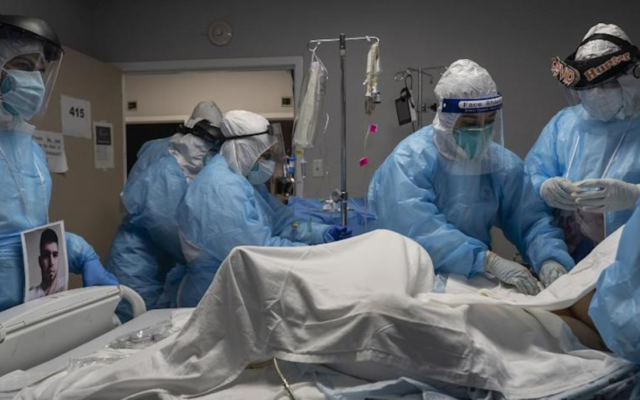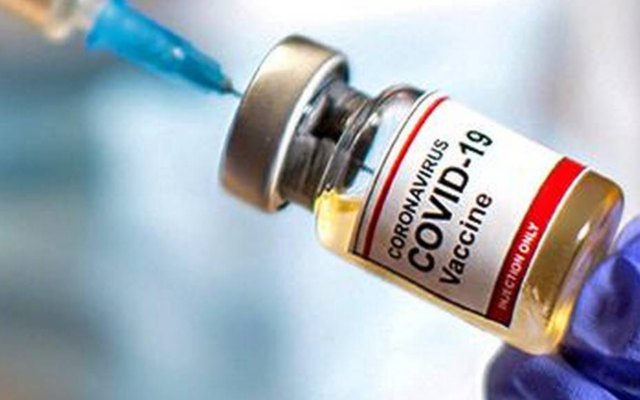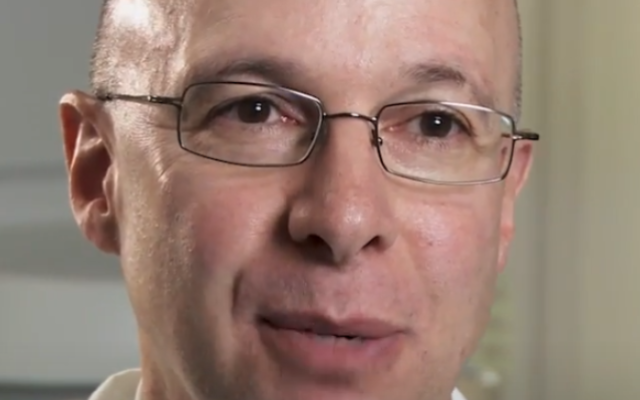Piedmont Director’s Final ‘Unimaginable’ Year
Dr. Mark Cohen retires after leading the hospital through the pandemic.
On June 30, Dr. Mark Cohen retired after a long career as a triple board-certified cardiologist and after nine years as chief medical officer of Piedmont Atlanta Hospital.
He described his work during the pandemic that has so far claimed over 600,000 lives in America as an “unimaginable experience.” One of those who was lost was his own father. The AJT talked with Cohen about what he had experienced during the last 1 ½ years.
AJT: Take us back to what it was like at Piedmont Atlanta Hospital early in 2020, just as the pandemic began to develop?
Cohen: It just came on us like a tsunami, that out there somewhere this giant wave was coming and it’s going to crash down on you. The big crisis was really New York City. They had trailers in the parking lots of hospitals for the bodies, and we needed to prepare for that possibility. We stopped doing all medical work that could be delayed. We cleared out the hospital and we kept all the staff. We never let anybody go.
AJT: What were your biggest worries?
Cohen: I worried that we’d be totally overrun and unable to care for the number of patients for whom we are obligated to care. Will we be setting up beds in the lobby of the hospital and caring for people there? Will we run out of ventilators? Will we have enough masks and gloves? Will the supply chain of the country be interrupted, and we can’t get sterile saline? I mean, I worried about everything.

AJT: Clearing the hospital must have meant no visitors, how difficult was that?
Cohen: We made that decision very early on because probably our biggest risk at the time would be an epidemic that would sweep through the hospital. So if the staff, the nurses, the doctors all start getting infected, then we’d have a disaster. So for public health reasons, we needed to keep visitors out and separate patients from their loved ones, separate families. We took patients and we forced them into, in essence, solitary confinement. It was terrible.
AJT: How did that affect you?
Cohen: We had to have a method for granting exceptions and the method was the chief medical officer. That was me, so I was the recipient of all the requests, and I was talking to patients and families, nurses and doctors. And when I look back at my role, this is the experience that I remember the most vividly, the pain, the emotional pain that families were going through.
About three weeks into it, in early April, I realized that I had become incapable of saying “no.” I just couldn’t do it anymore, and I went to the chief nursing officer, and I said, ‘I don’t cry uncle very often, but I need to give this to you. I’m not doing the job that the hospital needs anymore.’ Emotionally, I couldn’t do it. I was crushed.
AJT: How has it turned out?
Cohen: It turned out that we never were overrun the way we were afraid we would be. Our peak number of COVID patients at any one time was about 110.
AJT: How would you describe the progress you’ve made in treating patients with the disease?
Cohen: I think we’re way further ahead than we were 16 months ago. Antiviral therapy has been dramatically advanced. You have an infectious illness in your lungs and part of what’s killing you is your body’s own immune response. So we actually treat you with steroids to reduce your body’s inflammatory response. However, there still isn’t good primary therapy. We have the convalescent plasma, the antibodies that can be administered to people, steroids, supplemental oxygen, but fundamentally it’s supportive care.
My father, who was 88, came down with COVID in February of this year before he could be vaccinated. He was treated with totally contemporary care in a hospital in Miami and everything was done that could be done, but fundamentally his body just succumbed.

AJT: And how do you view the development of the vaccines?
Cohen: The most dramatic, unbelievable gift from G-d, I would guess, is the vaccine. I mean, this mRNA vaccine platform, which was initially developed several years ago for the SARS virus and was not used very much since, was brought back out for this. It is unbelievable.
The capability now is to take a little bit of genetic material that will fight the virus, stick it into these little, tiny, microscopic carriers and inject it into you. So if we all need boosters, it’ll be the exact same vaccine with just a little difference to the genetic material inside it.
AJT: How do you think you’ve done with the challenges you’ve faced.
Cohen: I’m speaking for all of health care right now and all of medicine. There are special places in heaven for these people who worked over the past year and a half. I mean, with everything that was unknown about the virus and all the dangers they faced, these people put on their gowns, their N95 masks and their gloves every day and they saved so many lives.




comments